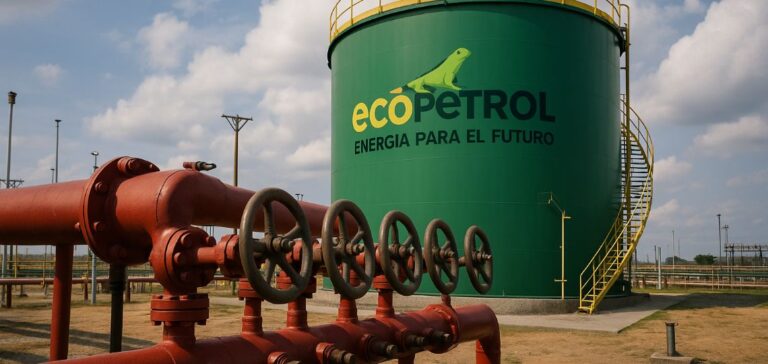The US agency S&P Global Ratings has announced a downgrade in the global credit rating of the Colombian oil company Ecopetrol S.A. from BB+ to BB, maintaining a negative outlook. This decision comes just after the agency lowered Colombia’s sovereign rating. Despite this downgrade, Ecopetrol’s Stand-Alone Credit Profile (SACP) remains unchanged at bb+. The global rating thus remains aligned with Colombia’s sovereign rating, reflecting Ecopetrol’s central role in the national economy and its status as a government-related entity.
Influence of the sovereign rating
S&P specifies that this revision is primarily due to the close ties between Ecopetrol and the Colombian state, which necessarily caps its global rating. The agency highlights Ecopetrol’s major contribution to Colombian public revenues, as well as its strategic importance to the country’s energy policy. The negative outlook on the rating remains directly linked to Colombian economic risks and potential further downgrades of the sovereign rating.
Financial solidity according to S&P
According to S&P, Ecopetrol maintains stable financial solidity, with a projected leverage ratio (debt/EBITDA) between 2.0 and 2.5 times. The agency also forecasts an EBITDA margin close to 40%, confirming operational efficiency aligned with previous expectations. Furthermore, S&P positively notes Ecopetrol’s long-term strategy set for 2040, focused on increasing petroleum reserves, diversifying activities, and enhancing the management of operational assets, particularly refineries.
Moody’s confirms a different rating
Meanwhile, Moody’s Investors Service announced it maintained Ecopetrol’s global rating at Ba1, with a stable outlook, along with its standalone rating at b1. Moody’s emphasizes Ecopetrol’s leading position in Colombia’s oil and gas sector and its significant electricity transmission activities in Colombia and other Latin American countries. These factors justify a global rating situated three notches above the group’s standalone rating, according to the agency.
Government support and business diversification
According to Moody’s, support from the Colombian government through the gradual phase-out of energy subsidies and the reduction of receivables linked to the Fuel Price Stabilization Fund (FEPC) significantly strengthened the company’s liquidity. Moody’s also highlights the strength and stability of Ecopetrol’s cash flows, bolstered by substantial contributions from its electricity transmission subsidiary ISA and midstream affiliates, which together represented 18% of EBITDA in 2024.






















